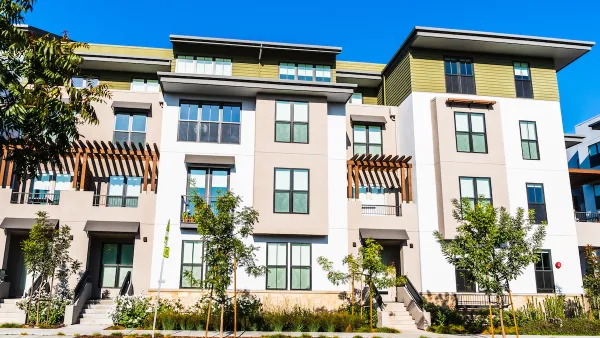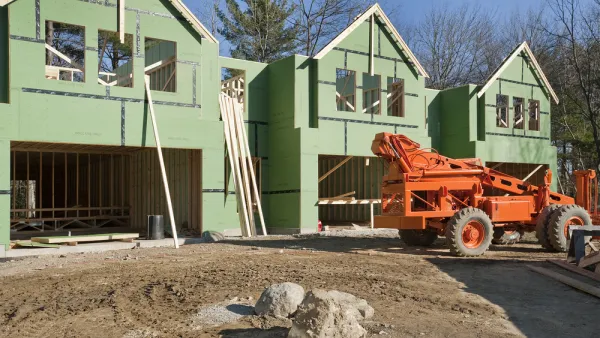An acquaintance of mine is trying to decide whether to move to Los Angeles or New York. Having spent most of her life in the Northeast, New York is a familiar city where she has good friends and job connections. However, she can’t help but feel the draw of the West Coast, and on a recent visit to Los Angeles, she was rather keen on settling down in Southern California, especially when she was comparing the rents in L.A. to those in New York. While rents in New York are increasingly stratospheric, L.A.’s are just exorbitantly high.
An acquaintance of mine is trying to decide whether to move to Los Angeles or New York. Having spent most of her life in the Northeast, New York is a familiar city where she has good friends and job connections. However, she can't help but feel the draw of the West Coast, and on a recent visit to Los Angeles, she was rather keen on settling down in Southern California, especially when she was comparing the rents in L.A. to those in New York. While rents in New York are increasingly stratospheric, L.A.'s are just exorbitantly high.
However, several friends pointed out that since most people in Los Angeles consider a car a necessity, she would need to factor that into her cost of living. Once she did, she realized that living in Los Angeles would actually be more expensive than living in New York. Certainly, it is possible to live in Los Angeles without a car (and many do, including myself). However, as someone who's also lived in a very transit-friendly city (Hong Kong), I'll also be the first to admit living in L.A. without a car is not easy. In New York, the question is sometimes even asked in reverse – why would you want to deal with the hassle of owning a car?
All this got me thinking – how much are the higher rents in New York connected to the fact that you don't need to pay for a private vehicle? And are L.A.'s property owners and landlords losing out on income potential because they and their tenants feel the need to own cars? If so, there seems like a good economic argument for convincing property owners to pay for more transit.
Of course, the idea of financing transit improvements using tax increment financing on property within easy access of improved transit service isn't new. Los Angeles tried this itself when the first stretches of the city's subway were built – establishing benefit assessment districts in and around its downtown. However, these were limited to commercial properties, which stunted their potential. Carefully applied to residential properties, either through property taxes or rents, this concept might be able to capture some of the value that likely is created when investments in transit are made.

Analysis: Cybertruck Fatality Rate Far Exceeds That of Ford Pinto
The Tesla Cybertruck was recalled seven times last year.

National Parks Layoffs Will Cause Communities to Lose Billions
Thousands of essential park workers were laid off this week, just before the busy spring break season.

Retro-silient?: America’s First “Eco-burb,” The Woodlands Turns 50
A master-planned community north of Houston offers lessons on green infrastructure and resilient design, but falls short of its founder’s lofty affordability and walkability goals.

Test News Post 1
This is a summary

Analysis: Cybertruck Fatality Rate Far Exceeds That of Ford Pinto
The Tesla Cybertruck was recalled seven times last year.

Test News Headline 46
Test for the image on the front page.
Urban Design for Planners 1: Software Tools
This six-course series explores essential urban design concepts using open source software and equips planners with the tools they need to participate fully in the urban design process.
Planning for Universal Design
Learn the tools for implementing Universal Design in planning regulations.
EMC Planning Group, Inc.
Planetizen
Planetizen
Mpact (formerly Rail~Volution)
Great Falls Development Authority, Inc.
HUDs Office of Policy Development and Research
NYU Wagner Graduate School of Public Service





























